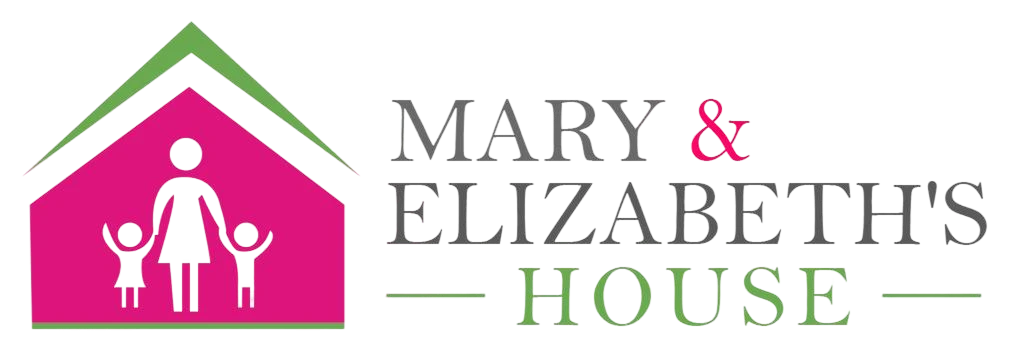Creating a Foundation for Healing and Stability Through Emotional Safety
For women and children facing housing instability, the concept of emotional safety is far more than a comforting ideal. It is a necessary condition for healing, rebuilding trust, and creating sustainable housing stability. Emotional safety in transitional housing provides the framework for trust, hope, and honest communication. Without it, progress toward independent living is often stalled, trauma recovery is hindered, and the possibility of breaking cycles of instability can feel out of reach.
In traditional homeless shelter models, emotional safety has not always been prioritized. For many women, past experiences with domestic violence, neglect, housing discrimination, or social stigma have eroded their sense of security and autonomy. In housing environments that fail to recognize these layers of complexity, women and children often struggle to feel truly safe or supported. That’s why trauma-informed, emotionally safe environments have become central to successful outcomes in transitional housing programs.
At Mary and Elizabeth’s House, we understand that for housing recovery to be truly effective, emotional safety must be woven into every interaction, every program component, and every shared space. It begins with compassion and continues through structure, trust, and affirmation. When women and children feel emotionally safe, they are more willing to explore life skills development, confront challenges, and believe in the possibility of stable housing and family wellbeing.
What Is Emotional Safety and Why Does It Matter in Housing Recovery?
Emotional safety refers to the feeling of being accepted, validated, and supported without fear of judgment, rejection, or harm. In a transitional housing context, it is the assurance that a woman and her children’s experiences, fears, and hopes will be treated with respect and confidentiality. It also means having predictable routines, consistent support, and clear boundaries that reduce anxiety and foster trust in their housing environment.
Women often arrive at transitional housing carrying the weight of interpersonal trauma, domestic violence, chronic stress, or social conditioning that teaches them to suppress their needs for survival. Emotional safety disrupts those patterns by creating space where vulnerability is met with compassion, not criticism. This safe space becomes the foundation where new life skills, healthy relationships, and housing stability can develop.
For women dealing with housing trauma, domestic violence recovery, or the stress of single parenting in crisis, emotional safety helps them regulate overwhelming emotions. It allows them to explore their goals and challenges without the added burden of performing or hiding their struggles. It also facilitates stronger relationships with program staff, deeper self-reflection, and more honest dialogue about their needs and aspirations.
For children who have experienced housing instability, emotional safety is equally crucial. It helps them process the trauma of unstable housing, develop trust in adults again, and begin to feel secure enough to focus on growth, learning, and healing.
Emotional Safety Is Not Just a Feeling—It’s a Practice
Establishing emotional safety involves much more than gentle language and a calm tone. It is an intentional practice rooted in policies, staff training, therapeutic approaches, and the physical housing environment. It begins with understanding the diverse backgrounds and lived experiences that women and children bring with them into transitional housing.
At Mary and Elizabeth’s House, emotional safety is cultivated through trauma-informed care, which recognizes the pervasiveness of trauma in the lives of women experiencing homelessness and seeks to avoid re-traumatization. Our program staff are trained not just to provide housing services but to listen to the stories beneath the immediate needs. Respect for autonomy, privacy, and agency guides every aspect of our supportive housing model.
The language we use, the way we greet families, how we respond to distress—all of these shape emotional safety. Boundaries are clear but flexible. Confidentiality is honored. Compassion is not conditional. These are not extras in the housing program; they are essential pillars of our trauma-informed housing model.
Physical safety and emotional safety are interconnected. Secure locks, private family spaces, quiet areas for children, and comfortable common areas all contribute to families feeling emotionally secure in their housing environment.
How Women and Children Benefit from Emotionally Safe Housing Environments
Emotionally safe housing environments give women and children permission to show up as their full selves. In these settings, they learn they don’t have to hide their grief, anger, fear, or exhaustion. They don’t need to minimize their trauma to make others comfortable. Instead, they are supported in expressing their truth and working toward their goals, no matter how challenging their circumstances may be.
When emotional safety is prioritized, women are more likely to engage meaningfully in life skills programming. They begin to trust program staff—and themselves. This trust unlocks deeper healing and skill development, especially for those who have experienced betrayal, neglect, or emotional abuse. Safety enables women to rebuild a sense of control over their lives, which is a critical step in achieving housing stability and economic independence.
For children in our program, emotional safety means they can finally be children again. They can play, laugh, express emotions, and focus on learning without constantly worrying about where they’ll sleep or whether they’re safe. They begin to trust that adults will protect them and meet their needs consistently.
The benefits also extend beyond our transitional housing program. Emotional safety helps women form healthier relationships, set appropriate boundaries, and communicate their needs with clarity and confidence. As they internalize the experience of being treated with dignity, they become more likely to demand it in other areas of life, from employment situations to future housing decisions.
The Role of Community Support in Emotional Safety
A key element of emotional safety in transitional housing is peer support and community connection. Sharing space with others who have lived through similar struggles helps women feel less isolated and stigmatized. It reduces shame and encourages solidarity. Peer interactions in group programming or community activities offer opportunities for empathy, mutual validation, and collective healing.
In women-centered programs like those offered at Mary and Elizabeth’s House, peer relationships become especially meaningful. Many women find that it is only in the presence of other mothers facing similar challenges that they feel truly safe enough to speak freely about their experiences, fears, and dreams. The shared understanding of housing insecurity, single parenting challenges, and domestic violence recovery helps foster an environment of honesty, respect, and connection.
Our Volunteer Service Sundays exemplify this community support approach. When volunteers, program participants, and staff work side by side on projects, it creates a sense of shared purpose and mutual respect that reinforces emotional safety. These connections are not only supportive but transformative.
For women who have experienced relational trauma, rebuilding trust through healthy peer interactions and community connections can serve as a model for future relationships and help repair damaged beliefs about safety and trust.
Building Emotional Safety into Every Level of Housing Support
Whether a woman enters our transitional housing program in crisis or has been planning her transition for months, emotional safety must remain a priority throughout her journey. Each phase of housing recovery requires its own approach to fostering trust and psychological stability.
In our residential program, daily routines provide structure and predictability, which reduce uncertainty and support emotional regulation. 24/7 staff availability offers consistent reassurance. Private family units, common areas designed with comfort in mind, and activities that promote self-expression and skill development all contribute to a sense of security.
Our life skills programming and case management models provide independence preparation, which means emotional safety is also built through education and empowerment. Women learn to identify emotional triggers, practice stress management techniques, and recognize the signs of unsafe situations. They develop confidence in their ability to advocate for their family’s needs and maintain emotional safety in their future independent housing.
For children, we provide trauma-informed childcare, educational support, and therapeutic activities that help them process their experiences and develop emotional regulation skills in an age-appropriate way.
Therapeutic Approaches That Support Emotional Safety
Several supportive approaches are especially effective in creating emotionally safe environments for women and children in transitional housing. Strengths-based case management helps women recognize their inherent capabilities and reframe negative beliefs that may have been shaped by trauma or social stigma.
Trauma-informed care, as mentioned, is foundational. It prioritizes choice, empowerment, and collaboration. Case managers and program staff work with families, not on them. This collaborative spirit helps rebuild trust and reinforces the idea that every woman is the expert on her own life and the best advocate for her family’s needs.
Crisis intervention and safety planning are always available, ensuring that women know they have support when facing challenges. Conflict resolution skills and communication training help families navigate the stresses of housing transitions and life changes.
Other supportive activities such as art therapy, mindfulness practices, parenting workshops, and support groups also play a role in enhancing emotional safety. These activities help women and children process emotions, develop self-awareness, and build community connections.
What to Expect from Emotionally Safe Transitional Housing
When a woman and her children step into an emotionally safe transitional housing environment, they can expect to be met with kindness, respect, and understanding—not judgment. Their pace of progress is honored. Their goals are taken seriously. Their family’s needs and cultural background are acknowledged and respected, not ignored or minimized.
At Mary and Elizabeth’s House, emotional safety begins the moment a woman reaches out for help. From the intake process to transition planning, she and her children are surrounded by staff who are committed to their wellbeing and success. Every element of care is designed with the understanding that healing and growth cannot happen in fear or uncertainty—they happen in connection and safety.
From the warm welcome to the thoughtful independent living preparation, everything is done with their comfort, dignity, and family goals in mind. This approach not only fosters progress during the transitional housing period but encourages families to continue prioritizing their wellbeing and housing stability after they move to independent housing.
A Lasting Impact: The Lifelong Importance of Emotional Safety
The benefits of emotional safety extend well beyond the transitional housing program. When a woman and her children experience psychological safety during their housing recovery journey, they carry that experience with them. It becomes a benchmark by which they evaluate future housing situations, relationships, and environments.
Women learn that their voice matters. That their family’s needs are valid. That they are worthy of safe, stable housing and capable of setting boundaries that protect their family. These are not just insights—they are transformative truths that influence every area of life, from parenting and partnerships to employment and community engagement.
Children who experience emotional safety during housing transitions are more likely to develop healthy attachment, emotional regulation skills, and the belief that they deserve to be safe and cared for. This foundation supports their long-term development and resilience.
By centering emotional safety in transitional housing, we help rewrite the internal script that too many women carry—the one that tells them they are somehow responsible for their housing crisis or that they don’t deserve stability. In its place, we help instill a belief in self-worth, family strength, and resilience.
Why Emotional Safety Will Always Be a Priority at Mary and Elizabeth’s House
At Mary and Elizabeth’s House, emotional safety is not a feature of our housing program—it is the heartbeat of our mission. We believe that when women and children feel emotionally supported, they become more open to the possibilities of healing, growth, and stable housing. Our trauma-informed transitional housing facility offers a necessary space for true restoration and family rebuilding.
With expert case managers, trauma-informed programming, and a compassionate community environment, we ensure that every family is met with understanding, acceptance, and hope. Our approach recognizes that housing stability is about more than just having a roof overhead—it’s about creating the emotional foundation that allows families to thrive.
Emotional safety may begin in transitional housing, but its impact can last a lifetime. For women and children who have spent too long feeling unsafe or unheard, that safety is the beginning of everything—stable housing, healthy relationships, educational success, and community connection.
Mary and Elizabeth’s House: Your Partner in Safe Housing and Family Recovery
Our commitment to emotionally safe transitional housing extends to every aspect of our program. We recognize that sustainable housing recovery requires comprehensive support that addresses both immediate housing needs and long-term family wellbeing. Emotional safety at Mary and Elizabeth’s House is not an additional service—it is central to our mission and woven throughout every interaction and program component.
Every woman and child deserves to feel safe, valued, and hopeful about their future. At Mary and Elizabeth’s House, we believe that with the right support, safety, and community, transformation is not just possible—it is inevitable.
If you or someone you know could benefit from our transitional housing and life skills program, we encourage you to reach out. Our doors are open, and our community is ready to welcome you home.
Contact Mary and Elizabeth’s House:
Phone: 786-373-7899
Email: info@helpmary.org
Address: Mary & Elizabeth’s House, 2200 N Commerce Pkwy, Suite 200, Weston, FL 33326
Learn more about our programs, volunteer opportunities, and ways to support families in transition at https://helpmary.org/



